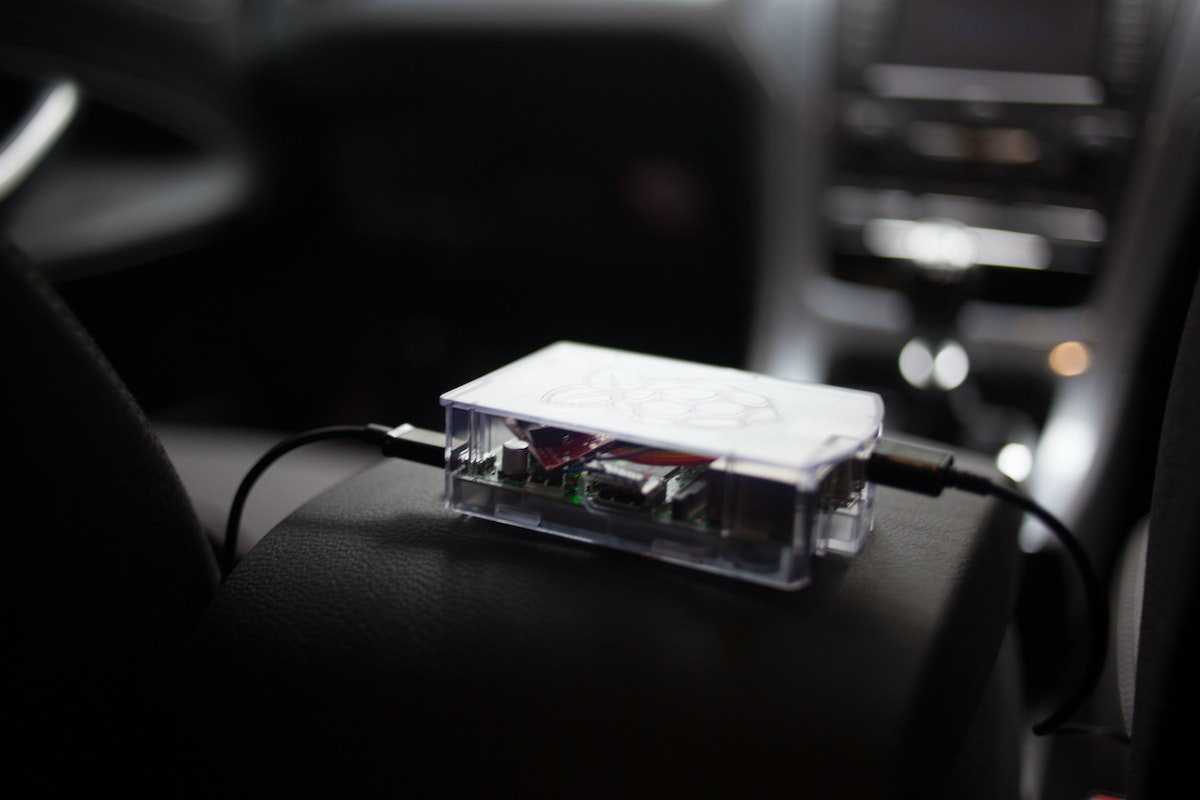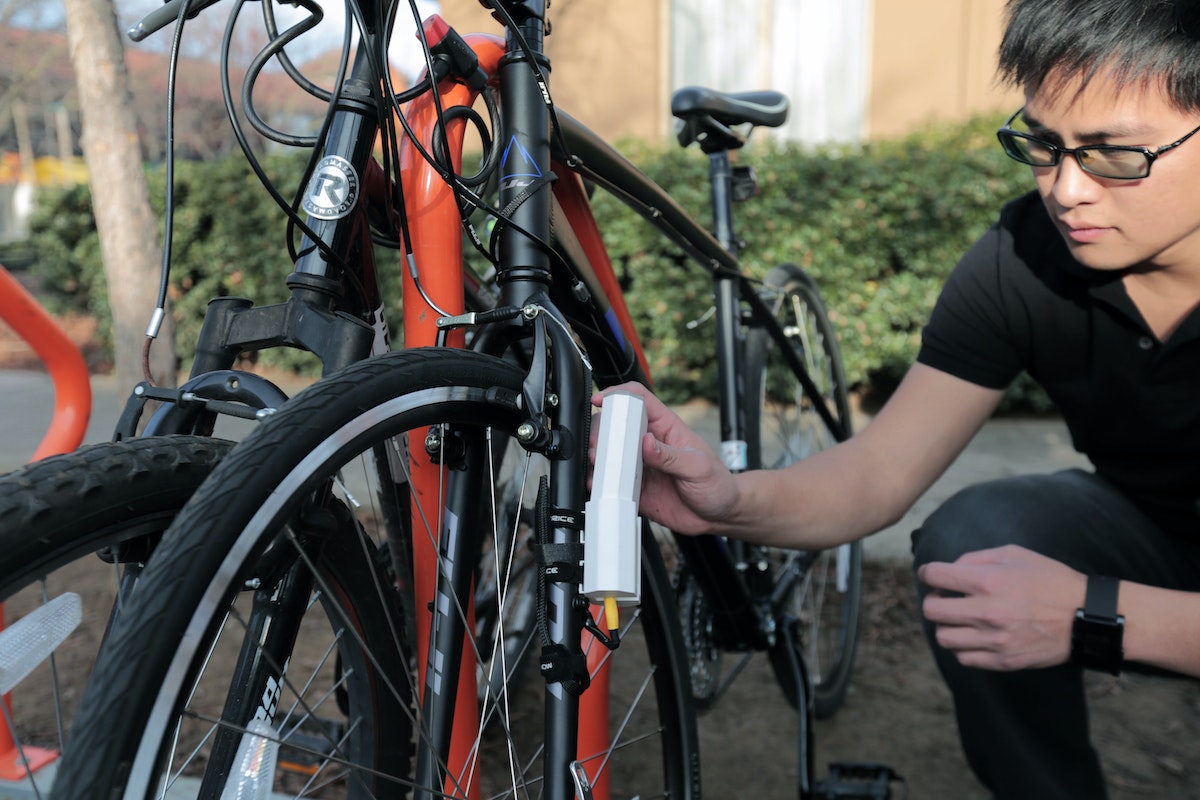

Beyond cars: Designing smarter mobility
Helping Ford evolve from an automaker to a mobility provider
Prototype experiments that reframe a car company’s place in a rapidly changing world of mobility.
Two designed, developed, and tested prototypes: a pay-as-you-go insurance offer and a digital tracker that captures how cyclists, cars, and public transport interact in the city.
Hundreds of millions of people, from excitable teens driving their first hatchback, to new parents going in for a minivan, have driven Fords off lots around the world since the first Ford Model A was produced in 1903. And cars have changed how we shop, travel, and work; they’ve reshaped our homes, towns, and the world’s infrastructure.
Today, Ford, along with the entire industry, is at an inflection point. As millions around the world move into gridlocked, polluted cities, the allure of owning a shiny new car has dulled. In some places, young people are driving less, and getting their licenses later or not at all. Lightening their load, city dwellers are relying on ride-sharing services and other alternatives to individual ownership.

Technology underpins that shift from ownership to usership. Smartphones, sensors, and open data have enabled new ways of getting from point A to B: from car-sharing services like Zipcar to taxi services like Uber or clever transport apps like Citymapper that help people skip effortlessly between the bus, a shared bike scheme, and renting a car.
While the owner of the very first commercially available Model A—Chicagoan dentist, Ernest Pfennig—couldn’t see more than a century ago how cars would change the world, Ford is squinting into its future by prototyping it now. Building on a longstanding relationship with IDEO, the carmaker approached us, along with a number of other partners, to undertake two of 25 experiments exploring a car company’s place in the changing world of mobility.
The first, Data-Driven Insurance, investigates a new pay-as-you-go insurance offer based on people’s driving behavior, as measured by a small adapter plugged into the car. The second, Infocycle, plots a snapshot of how bikes traverse the city and interact with cars and public transport by using Ford’s open source API, Open XC, to track cyclists around San Francisco.

Tackling the tangled ecosystems of bike sharing, private cars, and open city data proved an international effort. The two projects brought together a multidisciplinary team of researchers, hardware and software developers, data scientists, and interaction, industrial, and business designers from IDEO’s San Francisco, Palo Alto, Chicago, and London studios.
Have we cracked the future of mobility? Probably not. And that’s okay, says Fields. Smart mobility is simply part of Ford’s journey of evolution. Along with global competitions, collaborations with universities, and opening up their hardware and software platform Open XC, these experiments help Ford meet the needs of a fast-changing mobile world. “As we drive innovation in every part of our business,” Fields said, “we are determined to learn, to take risks, to challenge custom and question tradition, and to change our business going forward.”
More information on Ford’s Smart Mobility projects can be found here.
Hundreds of millions of people, from excitable teens driving their first hatchback, to new parents going in for a minivan, have driven Fords off lots around the world since the first Ford Model A was produced in 1903. And cars have changed how we shop, travel, and work; they’ve reshaped our homes, towns, and the world’s infrastructure.
Today, Ford, along with the entire industry, is at an inflection point. As millions around the world move into gridlocked, polluted cities, the allure of owning a shiny new car has dulled. In some places, young people are driving less, and getting their licenses later or not at all. Lightening their load, city dwellers are relying on ride-sharing services and other alternatives to individual ownership.

Technology underpins that shift from ownership to usership. Smartphones, sensors, and open data have enabled new ways of getting from point A to B: from car-sharing services like Zipcar to taxi services like Uber or clever transport apps like Citymapper that help people skip effortlessly between the bus, a shared bike scheme, and renting a car.
While the owner of the very first commercially available Model A—Chicagoan dentist, Ernest Pfennig—couldn’t see more than a century ago how cars would change the world, Ford is squinting into its future by prototyping it now. Building on a longstanding relationship with IDEO, the carmaker approached us, along with a number of other partners, to undertake two of 25 experiments exploring a car company’s place in the changing world of mobility.
The first, Data-Driven Insurance, investigates a new pay-as-you-go insurance offer based on people’s driving behavior, as measured by a small adapter plugged into the car. The second, Infocycle, plots a snapshot of how bikes traverse the city and interact with cars and public transport by using Ford’s open source API, Open XC, to track cyclists around San Francisco.

Tackling the tangled ecosystems of bike sharing, private cars, and open city data proved an international effort. The two projects brought together a multidisciplinary team of researchers, hardware and software developers, data scientists, and interaction, industrial, and business designers from IDEO’s San Francisco, Palo Alto, Chicago, and London studios.
Have we cracked the future of mobility? Probably not. And that’s okay, says Fields. Smart mobility is simply part of Ford’s journey of evolution. Along with global competitions, collaborations with universities, and opening up their hardware and software platform Open XC, these experiments help Ford meet the needs of a fast-changing mobile world. “As we drive innovation in every part of our business,” Fields said, “we are determined to learn, to take risks, to challenge custom and question tradition, and to change our business going forward.”
More information on Ford’s Smart Mobility projects can be found here.








